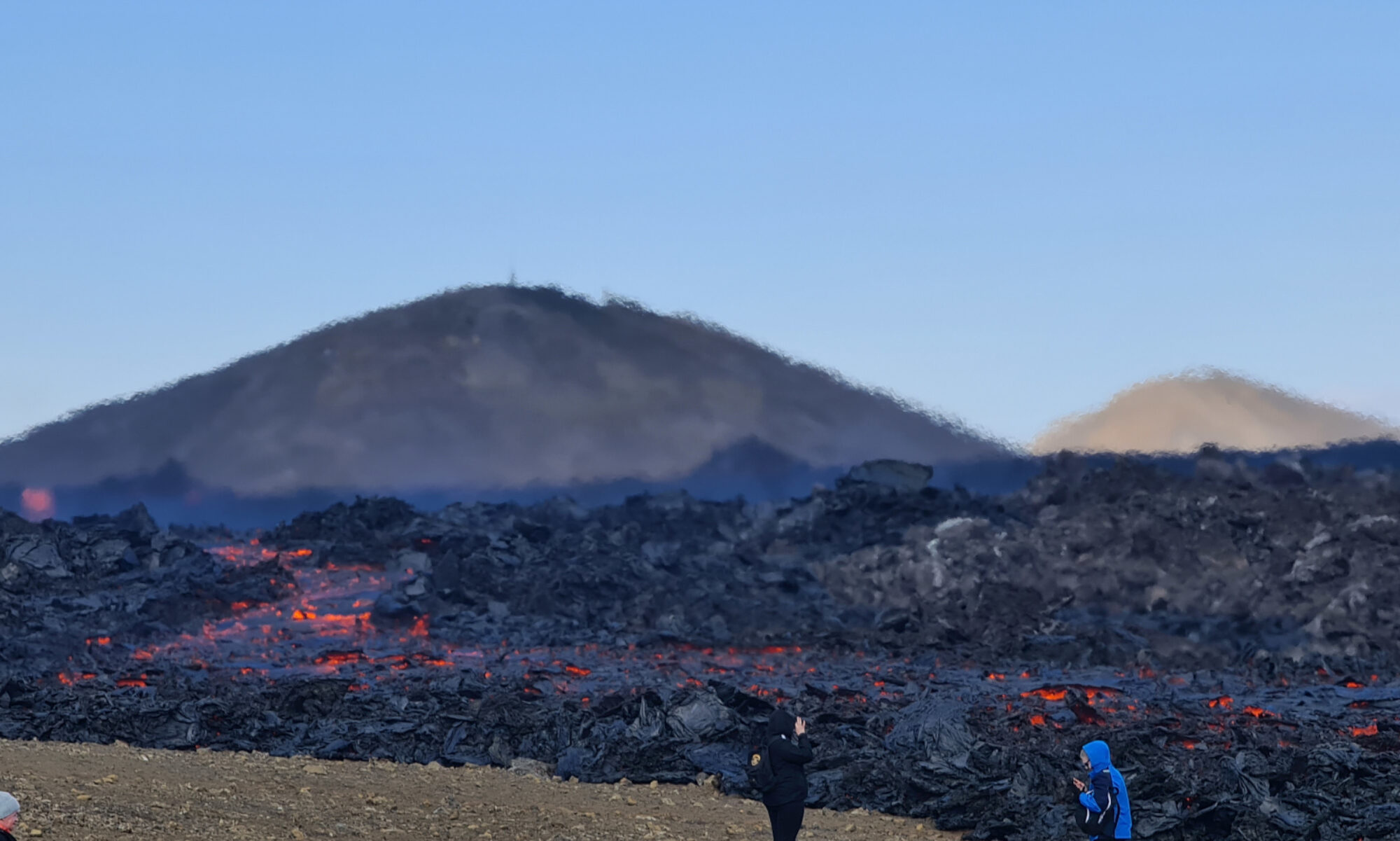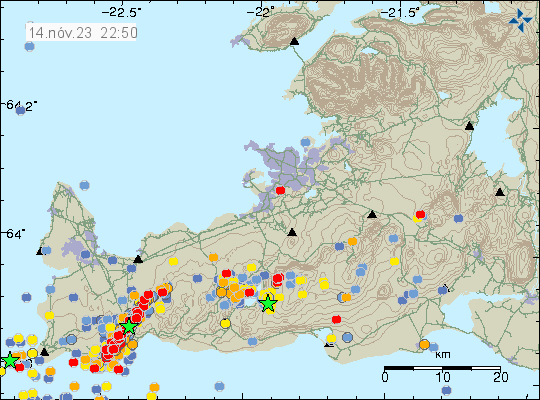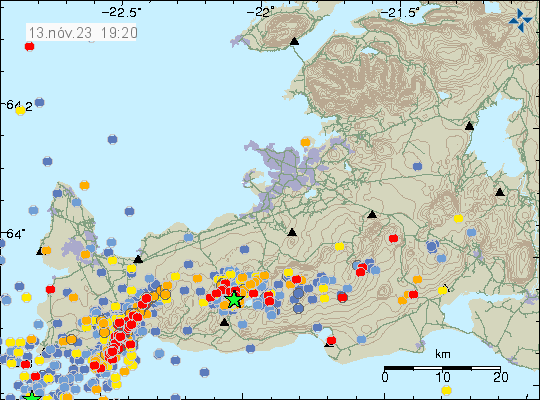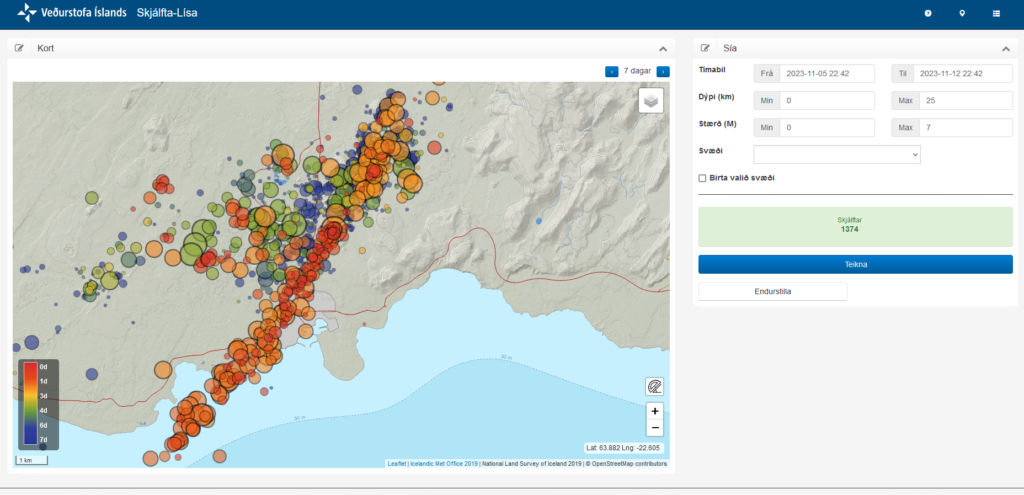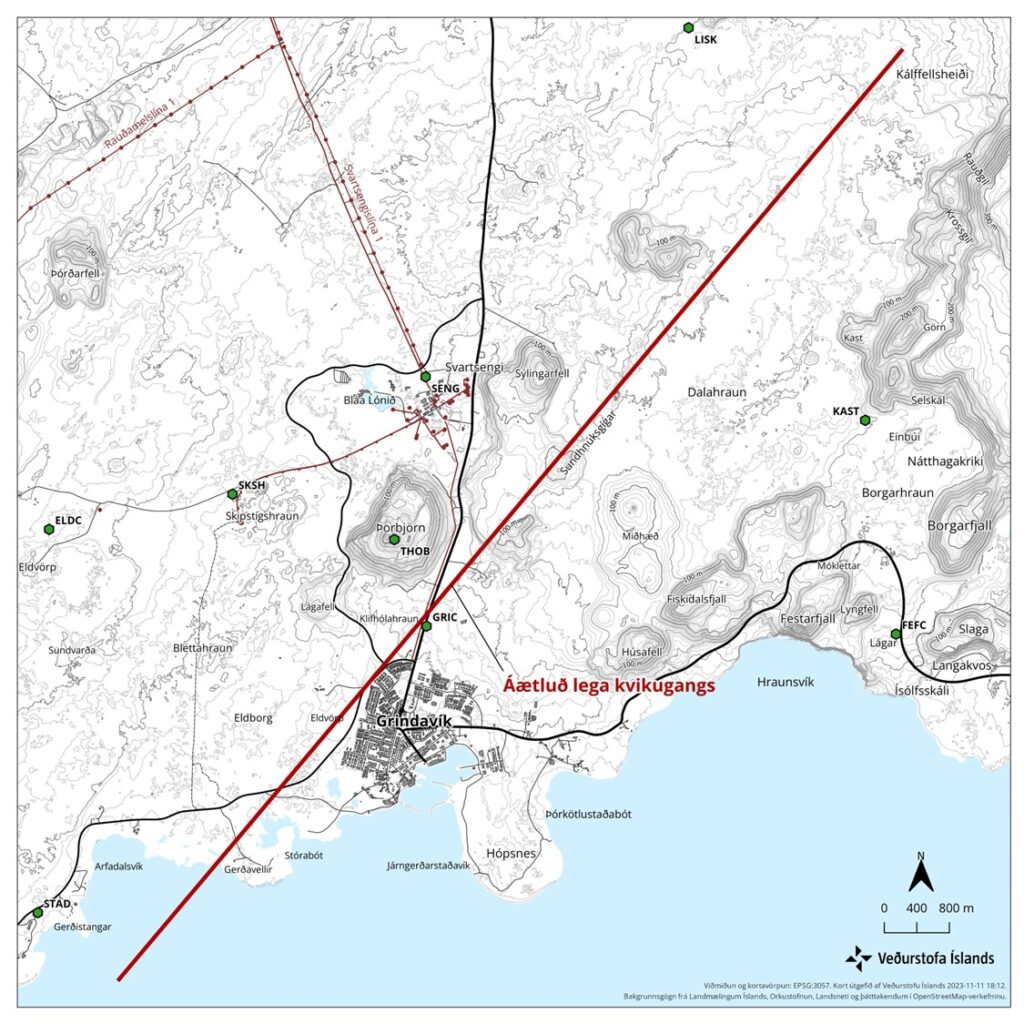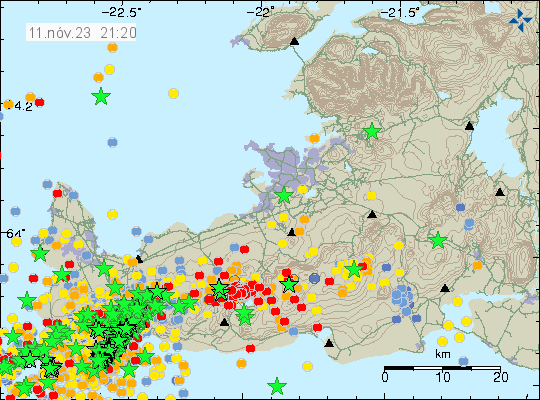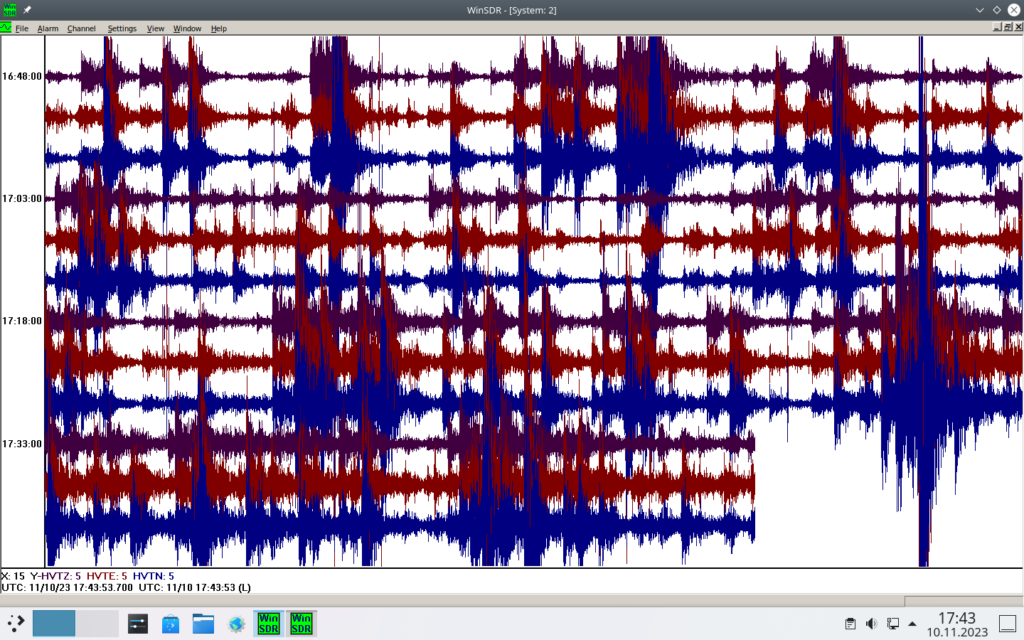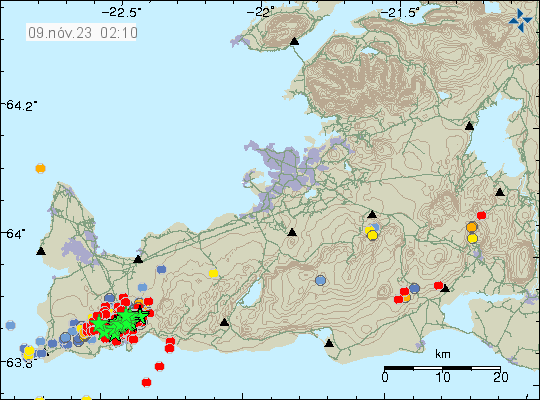This is a short update on what is happening in Grindavík on 16. November 2023. Information here can go outdated quickly and without warning.
The situation is mostly the same as yesterday (15. November 2023), but few things have happened and that is enough for me to publish this article.
- Sulfur dioxide has been detected in a drilling hole in Svartsengi. This drilling hole is such that it end point is close to Hagafell mountain east to Svartsengi power plant. I think this might be a cold water hole. It has a depth of 2,5 km. This means that magma is at or close to that depth. Ground water in this area doesn’t go deeper than 1,9 to 3 km I think (I am not sure on how the fresh water ground level works in this area).
- Eruption is expected from hours to day based on most recent measurements from Icelandic Met Office.
- Grindavík town continues to sink according to news today (16. November 2023). Difference between days can be as much as 25 cm.
- Mbl.is (Morgunblaðið) has a video of the damage done by this sinking on their website here. Its in Icelandic.
The situation for now is quiet, but that might only last for few hours to days longer before an eruption starts. Since earthquake activity strongly suggests that magma is looking for a way to the surface. While some magma is at shallow depth of 400 to 500 meters. There’s not enough of it to start an eruption. That can change without any warning at any time in this situation.
I’ll write updates if anything more happens here as quickly as I can.
